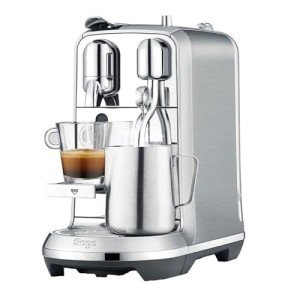Home Use Espresso Machines: A Comprehensive Guide
Espresso machines have become a staple in numerous homes as coffee enthusiasts seek to replicate café-quality brews in the comfort of their cooking areas. The increase in popularity has led to a diverse market filled with various models, functions, and costs. This short article intends to supply a useful summary of home use espresso machines, helping readers navigate their options successfully.
Comprehending Espresso Machines
Espresso machines work by requiring warm water through finely-ground coffee under high pressure, resulting in a concentrated coffee beverage called espresso. There are a number of types of espresso machines classified based on their brewing methods and level of automation. The most typical types include:
- Manual Espresso Machines: These require the user to control the pressure and water flow, enabling a more hands-on coffee-making experience.
- Semi-Automatic Espresso Machines: These offer automatic control over water pressure, while the user manually grinds and tamps the coffee.
- Automatic Espresso Machines: With the push of a button, these machines automatically control the flow of water, making it easier to brew espresso with constant outcomes.
- Super-Automatic Espresso Machines: These all-in-one machines deal with grinding, tampering, developing, and even milk frothing, making them perfect for users trying to find convenience.
- Pill or Pod Machines: These use pre-packaged coffee pods to create espresso with very little effort, however they restrict choice in brewing strategies and flavors.
Table: Comparison of Espresso Machine Types
| Type | Control Level | Reduce of Use | Cleaning Level | Ideal For |
|---|---|---|---|---|
| Manual | User-controlled | Moderate | High | Coffee purists |
| Semi-Automatic | Partial automation | Moderate | Moderate | Home baristas |
| Automatic | Fully automated | Easy | Low | Hectic people |
| Super-Automatic | Fully automated | Very easy | Really low | Convenience candidates |
| Capsule/Pod | Fully automated | Really simple | Really low | Casual drinkers |
Key Features to Consider
When choosing a home use espresso machine, it's important to think about different features that can significantly affect the quality of espresso and user experience.
- Pressure: Look for machines that offer at least 9 bars of pressure, as this is considered ideal for brewing espresso.
- Boiler Systems: Single vs. dual boiler systems figure out temperature level stability and the ability to brew espresso and steam milk all at once.
- Grinder: Integrated grinders permit freshly ground coffee, which enhances taste. Consider Pod Espresso Machines with adjustable grind settings.
- Milk Frother: For those who delight in coffees and lattes, an integrated steam wand or automatic frother is important.
- Size and Design: Consider your cooking area space and visual choices. Machines are available in numerous sizes, from compact to big setups.
- Cost: Home espresso machines can vary from a couple of hundred to numerous thousand dollars, so it's essential to develop a budget before checking out options.
Advantages and disadvantages of Home Use Espresso Machines
| Pros | Cons |
|---|---|
| Benefit of brewing coffee in the house | Initial investment can be high |
| Quality of espresso is often exceptional | Needs some skill, specifically with manual machines |
| Capability to explore tastes | Maintenance and cleansing can be labor-intensive |
| Can conserve money in the long run | Not all machines will fit every coffee choice |
Upkeep and Cleaning Tips
Keeping an espresso machine is important for extending its life and ensuring constant brew quality. Here are some useful pointers:
- Regular Descaling: Minerals from water can construct up in the machine. Descale every 1-3 months, depending on water hardness.
- Daily Cleaning: Rinse portafilters, baskets, and steam wands after each use to avoid coffee oils from developing residue.
- Use Filtered Water: This can help in reducing mineral buildup and enhance the taste of coffee.
- Replace Gaskets and Seals: These elements might break in time and needs to be changed to keep pressure and performance.
- Read the Manual: Each machine has particular care directions; following these will ensure longevity.
Frequently Asked Questions About Home Use Espresso Machines
Q1: What is the very best budget espresso machine?The best budget espresso machine typically depends on individual needs, however models like the DeLonghi EC155 or the Breville Bambino are popular amongst users for providing excellent worth. Q2: How long do home espresso machines usually last?With appropriate maintenance, home espresso machines can last anywhere from 5 to 15 years, depending upon the quality of the machine and frequency of use. Q3: Can I make cappuccinos and lattes with any espresso machine?While most espresso machines can make coffees and lattes, having a dependable
steam wand or frother is vital for attaining the ideal milk texture.
Q4: Are super-automatic machines worth the investment?For those who prioritize benefit and fast developing, super-automatic machines can be worth the financial investment, though they may lack some customizability in brew strength and flavor. Q5: What types of coffee beans are best for espresso?While individual preference contributes, beans identified as" espresso "blends are normally roasted darker, producing rich flavors and a velvety texture when brewed.
Buying a home espresso machine can transform the everyday coffee routine into something special, elevating home brews to café quality. By comprehending the different types of machines, crucial functions to think about, maintenance requirements, and weighing the
benefits and drawbacks, customers can make informed choices that match their individual preferences. As the espresso culture continues to grow, no matter the option, every brew can be a delicious experience waiting to be savored.

